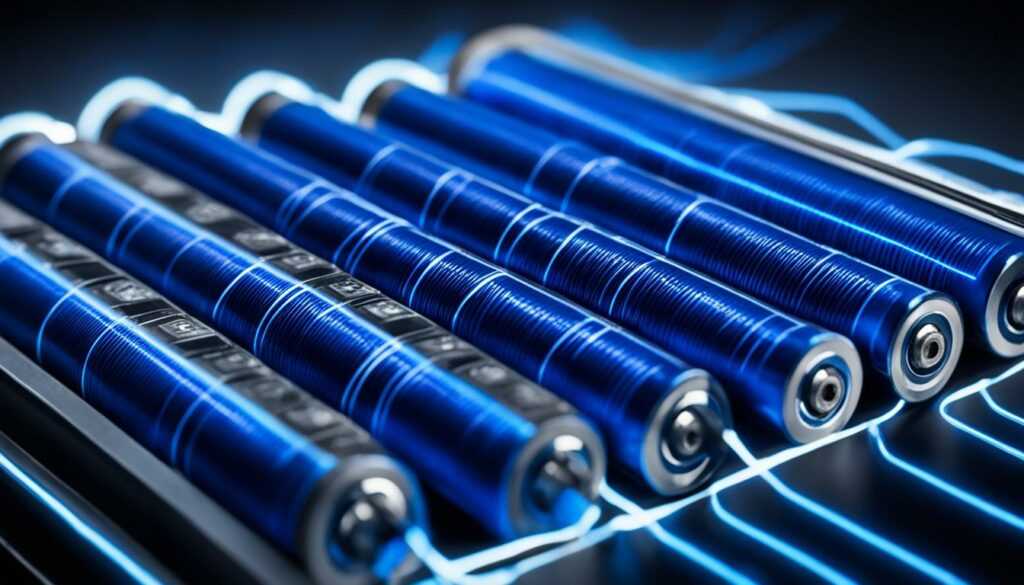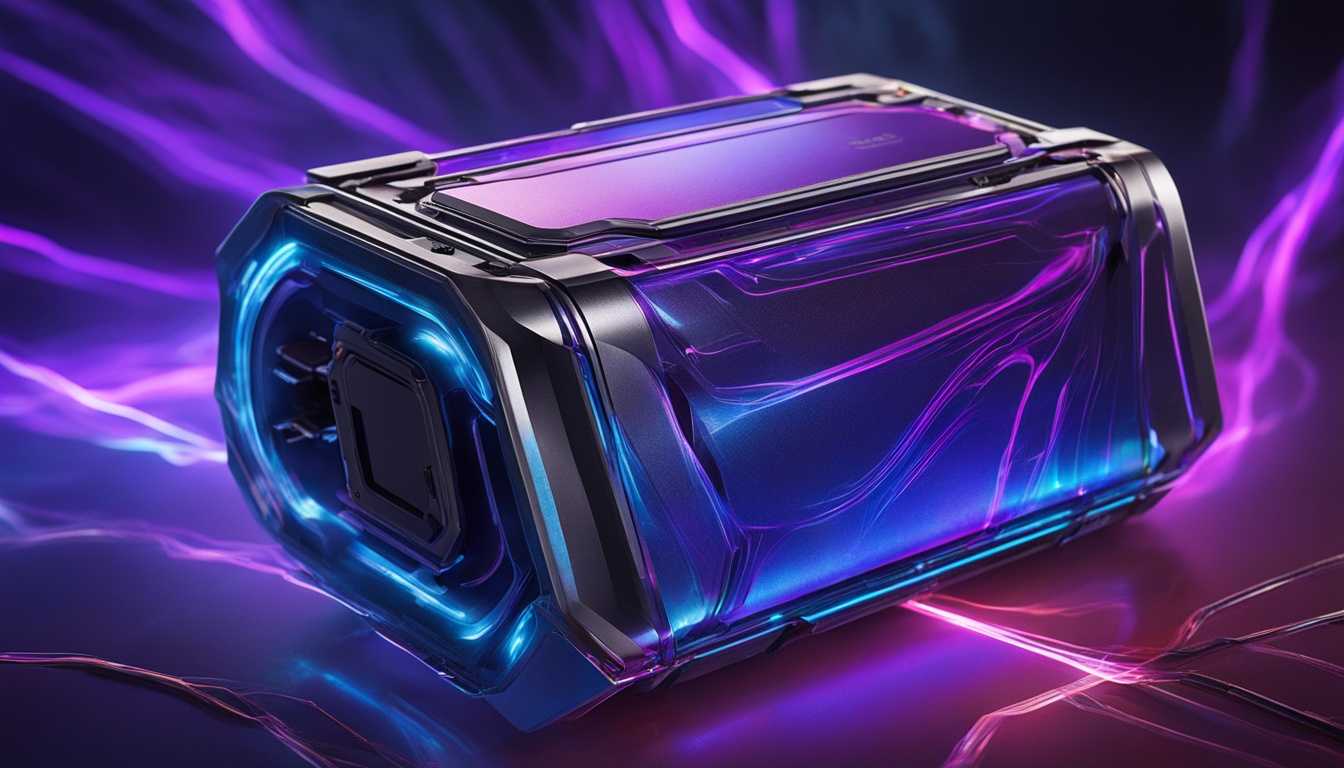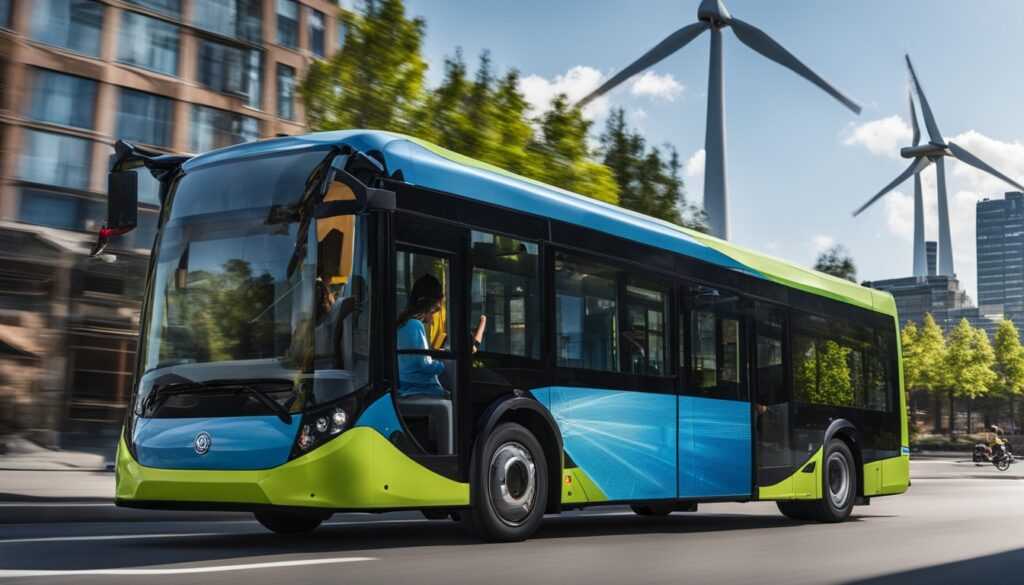High voltage lithium-ion batteries are becoming key in our tech world. They use lithium for energy, making them very efficient. These batteries help power electric cars, store renewable energy, and even in space tech.
These batteries pack a lot of energy in a small space. This feature is great for things we carry, like phones or laptops. It’s perfect when small size matters.
What’s more, they last a long time. They can be charged many times, working well for years. This saves money on replacements.
They charge up fast too. This means less waiting to use your device. Electric cars and solar energy need quick charges. These batteries make it happen.
High voltage lithium-ion batteries fit many uses. They power cars for long trips and save solar power. They also keep planes running smoothly. Even medical devices rely on them.
Choosing the right battery is important. Think about what your device needs. Look for trusted brands. The right battery will give you high energy, last long, charge fast, and work well with many tools.
Key Takeaways:
- High voltage lithium-ion batteries offer high energy density, providing more power in a compact size.
- These batteries have a long lifespan, making them cost-effective over time.
- High voltage lithium-ion batteries can charge rapidly, minimizing downtime and maximizing device usage.
- They are compatible with various devices and applications, including electric vehicles, renewable energy storage systems, aerospace technology, and medical devices.
- When choosing a high voltage lithium-ion battery, consider device requirements, energy capacity, lifespan, and reputable manufacturers.
Understanding High Voltage Lithium Batteries
High voltage lithium batteries use lithium as their main material. They have many cells that can create high power. These batteries are great because they store a lot of energy, last long, and charge quickly. Many industries use them because of their benefits.
The main plus of these batteries is how much energy they hold. Their energy density lets devices work longer before needing a charge. This is perfect for things like electric cars and gadgets that you can carry around.
High voltage lithium batteries also live through many charges. They last longer than most batteries. So, you don’t have to buy new ones often. This saves money and is good for the Earth.
They also charge up fast. Quicker charging means less wait time. This is key for things like medical tools and electric cars that always need to be ready.
These batteries fit many things and work well in many places. Electric cars need them for long drives. They also save energy from the sun or wind in storage systems. This helps us use more clean energy.
“High voltage lithium batteries offer high energy density, extended lifespan, and rapid charging capabilities, making them an excellent choice for various devices and applications.”
They’re also super important in space tech for power. And in health care, they’re trusted for equipment that must work all the time.
To sum up, high voltage lithium batteries are a top pick for power needs. Their strong points include a lot of stored energy, long life, quick charging, and working in many things. This makes them key in electric cars, green power, space, and health.
Advantages of High Voltage Lithium Batteries
High voltage lithium batteries are a top choice for many because of their benefits. They have a high energy density, which means they store a lot of energy in a small space. This feature lets devices run for long times without needing a lot of recharging.
These batteries also last a long time, known for their long lifespan. They give reliable power over long periods. This is great for things like electric cars or medical tools that are used a lot.
Another plus is their rapid charging. They can quickly get ready to use again, avoiding long waits.
They’re also very versatile, working with many different devices and uses. You can find them in electric cars, little gadgets, green energy systems, space tech, and more.
High voltage lithium batteries offer high energy density, long lifespan, rapid charging, and compatibility with various devices and applications.
Let’s check out the table below. It shows how high voltage lithium batteries compare to traditional ones in key areas.
| Feature | High Voltage Lithium Batteries | Conventional Batteries |
|---|---|---|
| Energy Density | High | Lower |
| Lifespan | Long | Shorter |
| Charging Speed | Rapid | Slower |
| Compatibility | Wide range of devices and applications | Limited |
Applications of High Voltage Lithium Batteries
High voltage lithium batteries are used in many industries. They are key in electric vehicles, renewable energy systems, aerospace, and medical tech. Their strong power and reliability are crucial in these areas.
Electric Vehicles
They are changing the car world with electric vehicles. These advanced batteries make long drives possible. They also make cars more efficient while cutting down on pollution.
Renewable Energy Storage Systems
With the push for green energy, storing power becomes more important. High voltage lithium batteries are perfect for saving extra power from solar or wind. This stored energy helps keep renewable power available even when the sun isn’t shining or the wind isn’t blowing.
Aerospace Technology
Airplanes and satellites use these batteries for power. Their light weight and long life are great for space and flying. They provide the stable power needed by critical systems in the sky.
Medical Devices
In medical tech, these batteries keep life-saving devices working. Pacemakers, insulin pumps, and defibrillators rely on them. Their lasting power and small size mean these devices work without interruption.
These big batteries are making major changes across many fields. They are found in electric cars, green energy, space, and healthcare. As technology grows, we’ll want more of these batteries for a greener future and new innovations.
| Industry | Applications |
|---|---|
| Electric Vehicles | Long-range driving and efficient performance |
| Renewable Energy Storage Systems | Storing excess energy for reliable renewable energy supply |
| Aerospace Technology | Critical system power for satellites and aircraft |
| Medical Devices | Powering life-saving medical equipment |
Tips for Choosing the Right High Voltage Lithium Battery
Choosing the best high voltage lithium battery for your device is crucial. It’s important to look at your device’s needs, its power, how long it will last, and who makes it. Doing so helps you make a smart choice.
1. Device Requirements and Voltage Compatibility
Know what your device needs, including its voltage limits. Make sure the battery you pick fits within these limits. This keeps your device safe and running well.
2. Energy Capacity
Think about how much energy your device uses. Bigger batteries hold more energy. This means your device will work longer without needing to charge up again.
3. Lifespan
Look at how long the battery is expected to last. A longer life battery means your device can run well for a long time. Choose batteries known for their durability.
4. Research and Compare Different Brands and Models
Don’t rush. Look at many batteries before you decide. Check out things like how well they work, if they’re safe, and what others say. Good brands usually mean better quality.
5. Consider Safety Features
Make sure the battery has safety features. It should guard against getting too full, too empty, or causing short circuits. Safety is really important with high voltage batteries.
6. Seek Recommendations and Expert Advice
If you’re not sure, ask for help. Talk to experts or the battery makers. They can give you the info you need to choose well.
Think about your device, its power needs, how long the battery will last, and its safety features. Take your time to choose right. This way, you’ll get a battery that makes your device work well and lasts a long time.
Introduction to High Voltage Batteries
High voltage batteries are key power sources working at higher voltages than regular ones. They are vital in many fields. These fields include electric cars, renewable energy storage, and aerospace. They provide strong, reliable energy solutions.
These batteries have changed how we power our technology and transportation. They make advanced technology possible. Their long power lifespan supports technological progress.
Applications of High Voltage Batteries
High voltage batteries are used across many industries. They bring unique benefits to each. Let’s look at the important places they make a difference:
- Aerospace and Defense: They’re crucial for powering space missions and drones. Their reliability is key for important tasks.
- Electric Vehicles: High voltage batteries empower EVs and HEVs. They offer long ranges and fast, steady power.
- Renewable Energy Storage: They store extra energy from solar and wind. This helps keep our energy grid stable and clean.
- Medical Devices: These batteries are vital for critical medical equipment. They provide power for pacemakers and more.
- Industrial Applications: They’re also used in industry. For example, as backup power and for communication systems.
High voltage batteries are essential. They change how we use and save energy. As tech grows, so does the need for better batteries. These batteries need to be both safe and long-lasting.
Advantages and Innovations
“High voltage batteries offer many benefits, spurring innovation. New battery tech improves efficiency and safety. This allows for amazing new uses.”
Battery tech keeps getting better. We now have batteries with more power, lasting longer, and safer. These improvements help in using renewable energy and electric transport. They are also key to new technologies.
| Advantages of High Voltage Batteries | Innovations in High Voltage Batteries |
|---|---|
|
|
These high voltage batteries drive us towards a green, sustainable future. They are crucial for renewable energy.
Advantages and Disadvantages of High Voltage Batteries
High voltage batteries are great for many reasons. They can store a lot more energy than old types. This makes gadgets and electric cars last longer without being too heavy.
They also kick out more power. This is perfect for tools and vehicles that need to be quick and strong.
These batteries work better because they have higher voltage. They don’t waste as much energy.
High voltage batteries last longer too. They can be used more times before they start to wear out.
But, they do come with some downsides. Safety is a big worry because they work at high voltages. There’s more risk of problems like overheating, which could lead to fire. So, you must be careful with them.
They are more expensive than the usual batteries. This is because they use the latest tech. You might find them tough on your wallet.
Also, these batteries might not be easy to find. Not every store might sell them because they’re for specific uses.
“High voltage batteries offer higher energy density, increased power output, enhanced efficiency, and longer lifespan. However, safety concerns, higher cost, and limited availability are key disadvantages to consider.”
| Advantages | Disadvantages |
|---|---|
| Higher energy density | Safety concerns |
| Increased power output | Higher cost |
| Enhanced efficiency | Limited availability |
| Longer lifespan |

Working Principles of High Voltage Batteries
High voltage batteries change chemical energy into electrical energy. They have electrodes, an electrolyte, and a separator. These parts work together, creating a steady power source. As the battery charges and discharges, ions move through them, making electric current.
The battery’s electrodes are key. They’re made from various materials based on the battery’s chemistry. The cathode (positive electrode) and anode (negative) are vital for the battery to work.
The electrolyte helps ions jump between the electrodes, aiding the creation of electricity. It provides ions for reactions and makes sure ion movement is efficient and safe.
A separator blocks the electrodes from touching. This stops short circuits. It’s porous, so ions can pass but electrodes don’t touch.
Charging your battery starts a chemical reaction. An external power source, like a charger, makes the battery reverse chemical changes from discharging. Ions move from the cathode to the anode, storing energy.
“The working principles of high voltage batteries involve the conversion of chemical energy into electrical energy.”
When you use your battery, chemical energy becomes electrical energy. Ions switch from the anode to the cathode, creating power for devices.
All high voltage batteries work a bit differently. Lithium-ion, lithium polymer, sodium-ion, nickel-metal hydride, and flow batteries all have their unique features and workings.
Knowing how these batteries work lets us use them better and safely. They give power to things like phones, cars, and saving solar energy.
Comparison of Working Principles of High Voltage Batteries
| Battery Type | Working Principles |
|---|---|
| Lithium-ion Batteries | Utilize lithium ions moving between the electrodes during charging and discharging processes |
| Lithium Polymer Batteries | Utilize a solid polymer electrolyte instead of a liquid electrolyte to enhance safety and allow for flexible battery shapes |
| Sodium-Ion Batteries | Utilize sodium ions moving between the electrodes during charging and discharging processes |
| Nickel-Metal Hydride Batteries | Utilize a chemical reaction involving nickel oxyhydroxide and a metal hydride during charging and discharging processes |
| Flow Batteries | Utilize the flow of electrolytes through different compartments to generate electrical energy |
Every battery type has unique strengths. Knowing their workings helps pick the best one for different devices. This selection enhances the battery’s efficiency.
Types of High Voltage Batteries
High voltage batteries are key to running many devices. They come in various kinds, depending on the chemistry and design. Each type has its own benefits and best uses.
Lithium-Ion Batteries
Lithium-ion batteries are popular in devices like phones, laptops, and tablets. They stand out for being lightweight, having a lot of energy, and lasting a long time. Their reusability is perfect for things regular people use every day.
Lithium Polymer Batteries
Lithium polymer batteries are a special type of lithium-ion that can be made into different shapes. They fit well in small gadgets like smartwatches and fitness trackers. These batteries hold a lot of energy, are very safe, and last a long while.
Sodium-Ion Batteries
Sodium-ion batteries are an up-and-coming technology that might beat lithium-ion. They use sodium for charging and could be cheaper because sodium is more common. These batteries are good for storing energy from sources like the sun and for big power grids.
Nickel-Metal Hydride Batteries
Nickel-metal hydride batteries were big in the past for gadgets and some cars. They’re not as strong as lithium batteries but they’re less costly and work in more temperatures. Today, lithium batteries are getting more popular than these.
Flow Batteries
Flow batteries are unique because they keep the liquid that powers them outside the actual battery. They can store a lot of energy and last a long time. These are great for using with renewable energy and in big grid systems.
Conclusion
High voltage lithium-ion batteries have many pluses. They excel in energy storage, last a long time, and work well with different things. They are changing how we use cars, store green energy, build airplanes, and make medical tools.
Choosing the right high voltage lithium-ion battery means looking at what your device needs. It also involves checking the battery’s energy, how long it lasts, and picking well-known brands. This way, you get the best performance and trustworthiness.
Using high voltage lithium-ion batteries means we can do more in a world powered by tech. They are efficient and stay active for a long time. So, these batteries support new ideas and help us make eco-friendly choices in many fields.
FAQ
What are the advantages of high voltage lithium-ion batteries?
High voltage lithium-ion batteries are known for several benefits. These include high energy density, long life, and quick charges. They work well with many devices and tasks.
What are high voltage lithium batteries?
These batteries use lithium as their main material. They come in many cells that create high voltages when combined.
What are the applications of high voltage lithium batteries?
Electric cars, green energy systems, space projects, and healthcare tools use these batteries.
How do I choose the right high voltage lithium battery?
Consider what the device needs, how much power it should have, and how long it should last. Also, look for trusted brands.
What are the advantages and disadvantages of high voltage batteries?
High voltage batteries give more energy and last longer. But, they are less safe, cost more, and can be hard to find.
How do high voltage batteries work?
They turn chemical energy into electricity with a reaction. This happens when they charge and discharge.
What are the different types of high voltage batteries?
There are various kinds like lithium-ion, lithium polymer, sodium-ion, nickel-metal hydride, and flow batteries. They differ in their chemistry and build.





